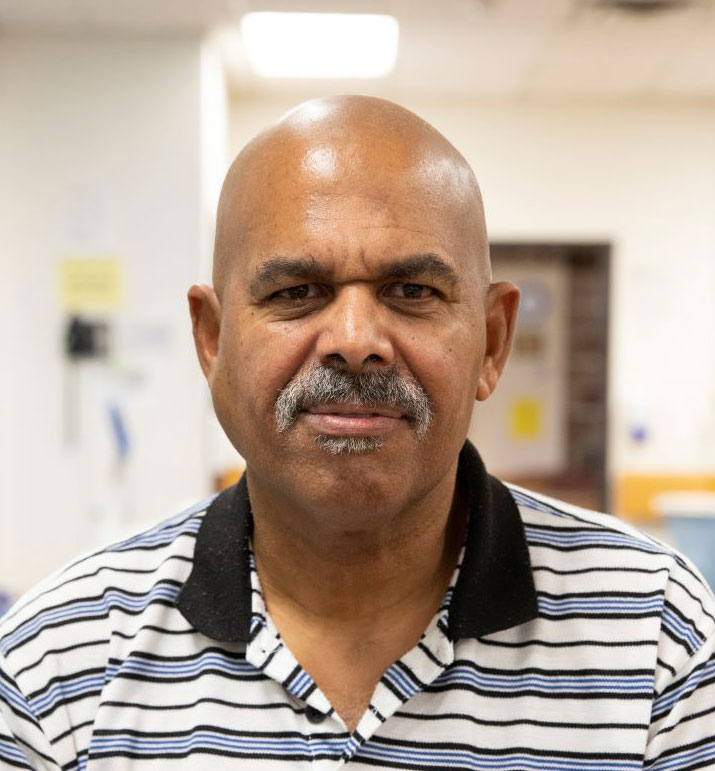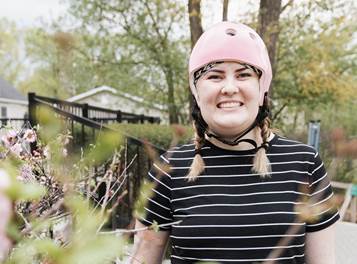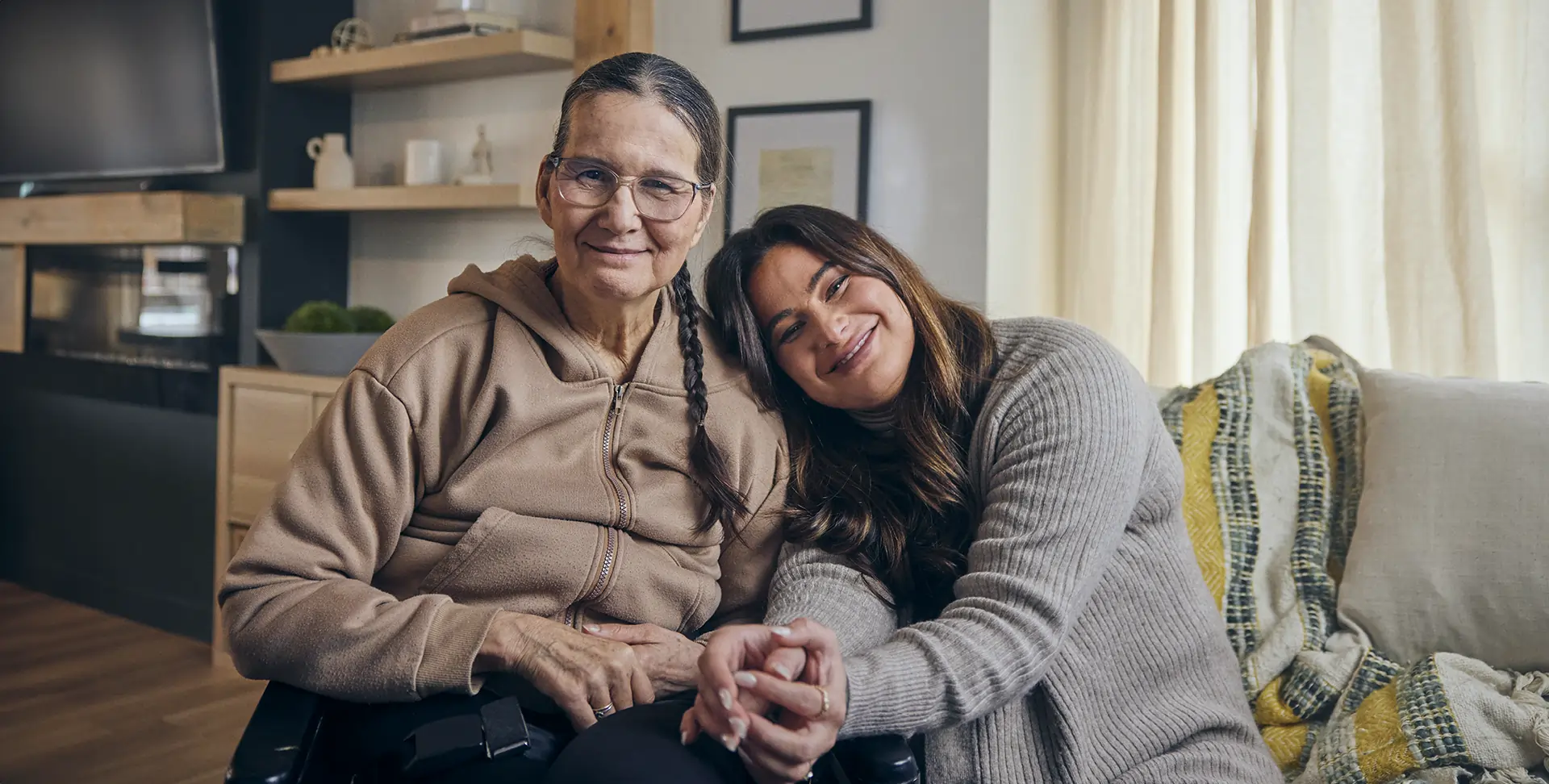
“I feel lucky to be here.”
Recovering from stroke after pregnancy, by Lisa Otway
At 37 years old, my life was great. We had a crazy and busy house with three kids under 4 years old, the youngest was born in August 2023, but I was loving my time with them. On December 8, I suddenly developed a severe and persistent headache that stopped me in my tracks. My vision and balance were affected, and I felt very nauseous.
I had never felt like this before, so I made an appointment with my doctor right away. I was given a prescription and told it was likely a migraine. I became very concerned when the medication didn't help, and I developed numbness on one side of my face and body. I was convinced this was not a migraine headache and my doctor agreed. She ordered a CT scan and made an urgent neurologist referral – that appointment was booked for two months later.
Over the next couple of weeks, my symptoms got worse, and I developed severe neck and stomach pain with vomiting. I went to my local hospital’s emergency department and it was again treated as a migraine. I asked to have the CT scan that my doctor had recommended and ordered, but I was told it was not necessary because the emergency physician believed I had a migraine.
The pain and symptoms became intolerable over the next couple days. After several more visits to the hospital, a CT scan, MRI and neurologist consultation, I received the final diagnosis: bilateral vertebral artery dissection causing a brainstem stroke. I’ve since learned that a vertebral artery dissection is a rare cause of stroke in the general population, but more common in younger people.
Now four months later, I am in the early stages of recovery with overall mild symptoms, and I feel lucky to be here. Like most stroke survivors, the shock of this experience and the realization of how much worse it could have been has not faded.
My neurologist has been incredible, he explained that postpartum hormone changes were likely a contributing factor in what caused the spontaneous vertebral artery dissections. I was not aware that women face increased risks of this during pregnancy and postpartum. There needs to be more education and awareness about the specific health risks that women face, especially during the antepartum/postpartum period, to help beat the health inequity that women face.
- Know the FAST signs of stroke
- Learn about women's unique risk factors for stroke
- Find out more about recovering from a stroke

Join the fight to end heart disease and stroke.
More stroke stories

Giving up is not in my vocabulary
With his wife by his side, Michael is determined to beat stroke.

After a stroke at 24
Surgeons finally put Courtney’s skull back together. Then she had to put her life back together.

“I am here for a reason.”
Lynne’s Indigenous culture helped sustain her through a devastating stroke
